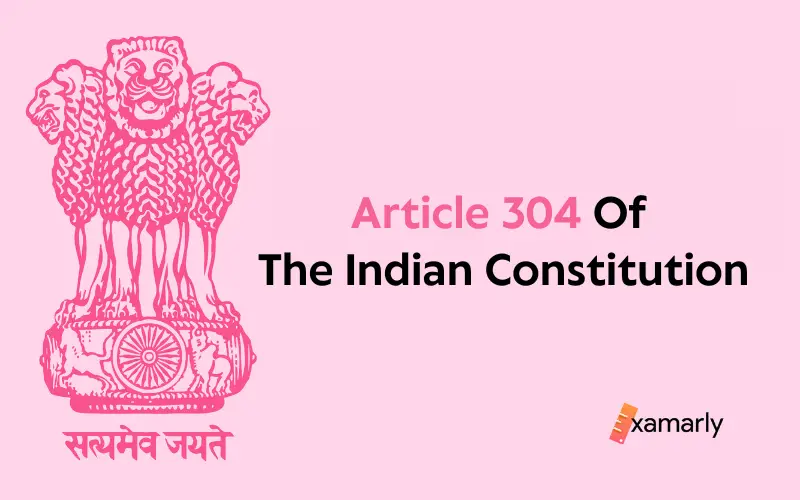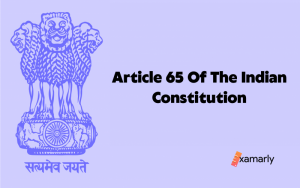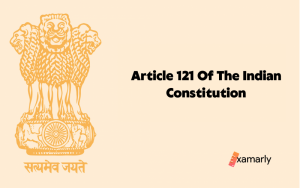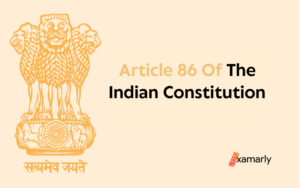Article 304 of the Indian Constitution deals with the regulation of trade and commerce within a state.
It provides that a state may impose reasonable restrictions on the freedom of trade, commerce, and intercourse within the state in the interests of the general public, provided that such restrictions do not discriminate against goods from other states.
Let us delve deep into Article 304 of the Indian Constitution and grasp all the concepts present in it.
- Article 304 of the Indian Constitution – In Detail
- Summing Up
- FAQs on Article 304 of the Indian Constitution
- What is the scope of a state's power to regulate trade and commerce within its borders under Article 304?
- Can a state discriminate between goods from different states?
- Is prior approval from the President required for a state to regulate trade and commerce under Article 304?
- Can a state regulate the sale and distribution of goods within its borders under Article 304?
Article 304 of the Indian Constitution – In Detail
We will break down each and every clause and sub-clause and analyze them exclusively to have an in-depth understanding of all the clauses.
Clause – As It Is & Explained
304. Restrictions on trade, commerce, and intercourse among states Notwithstanding anything in Article 301 or Article 303, the Legislature of a State may by law
(a) impose on goods imported from other States or the Union territories any tax to which similar goods manufactured or produced in that State are subject, so, however, as not to discriminate between goods so imported and goods so manufactured or produced; and
(b) impose such reasonable restrictions on the freedom of trade, commerce or intercourse with or within that State as may be required in the public interest: Provided that no Bill or amendment for the purposes of clause shall be introduced or moved in the Legislature of a State without the previous sanction of the President
The clause in Article 304 of the Indian Constitution says that despite anything mentioned in Article 301 of the Indian Constitution and Article 302 of the Indian Constitution, the parliament lawfully can
(a) impose on goods imported from other States or Union territories any tax to which equivalent products created or produced in that State are subject, without making any distinction between goods so imported and goods so manufactured or produced; and
(b) limit trade, commerce, or intercourse with or within that state to the extent necessary for the public interest; provided, however, that no Bill or amendment for the purposes of this section may be filed or advanced in the legislature of a state without the prior permission of the President.
Summing Up
We can conclude from Article 304 of the Indian Constitution that it allows a state to impose taxes on goods imported from other states or Union territories, as long as the tax is not discriminatory and is applied in the same way to similar goods manufactured or produced within the state.
The provision also allows a state to impose reasonable restrictions on the freedom of trade, commerce, and intercourse within the state in the interests of the general public, as long as the restrictions are not discriminatory.
However, any bill or amendment related to this clause must have the prior approval of the President before it can be introduced or moved in the legislature of a state.
FAQs on Article 304 of the Indian Constitution
Here are some frequently asked questions about Article 304 of the Indian Constitution:
What is the scope of a state’s power to regulate trade and commerce within its borders under Article 304?
Article 304 allows a state to impose taxes on goods imported from other states or Union territories, as long as the tax is not discriminatory and is applied in the same way to similar goods manufactured or produced within the state. The state may also impose reasonable restrictions on the freedom of trade, commerce, and intercourse within the state in the interests of the general public, as long as the restrictions are not discriminatory.
Can a state discriminate between goods from different states?
No, Article 304 prohibits a state from discriminating between goods from different states. A state must apply any tax or restriction on trade, commerce, or intercourse in a non-discriminatory manner.
Is prior approval from the President required for a state to regulate trade and commerce under Article 304?
Yes, according to Article 304, any bill or amendment related to this clause must have the prior approval of the President before it can be introduced or moved in the legislature of a state. This requirement is intended to ensure that the state’s regulations are consistent with the provisions of the Constitution and do not discriminate against goods from other states.
Can a state regulate the sale and distribution of goods within its borders under Article 304?
Yes, a state is allowed to regulate the sale and distribution of goods within its borders under Article 304, as long as it does not discriminate against goods from other states. In the interest of public order, morality, and health, the government can put reasonable limits on how goods can move within its borders, as long as those limits aren’t unfair to certain groups.






